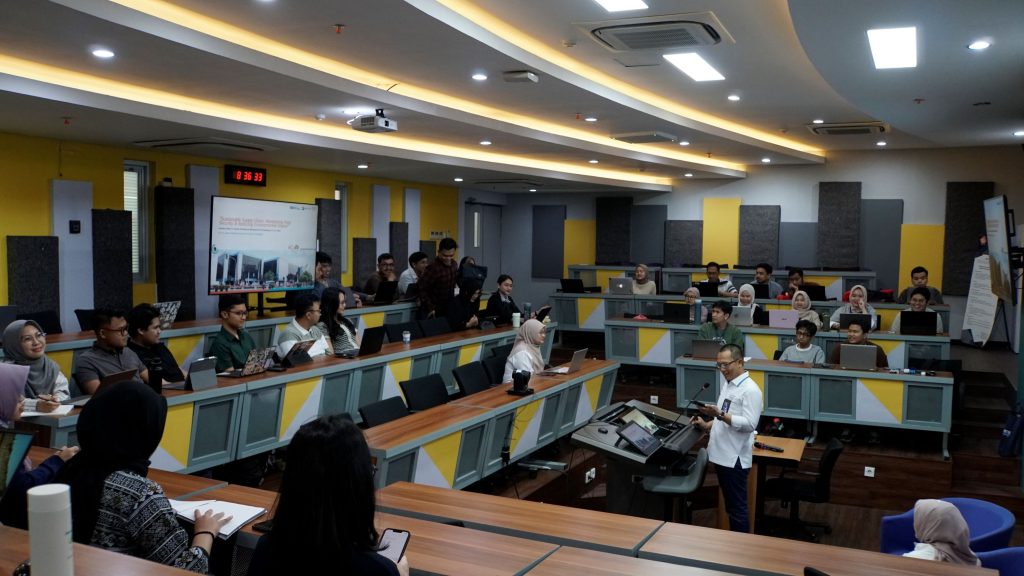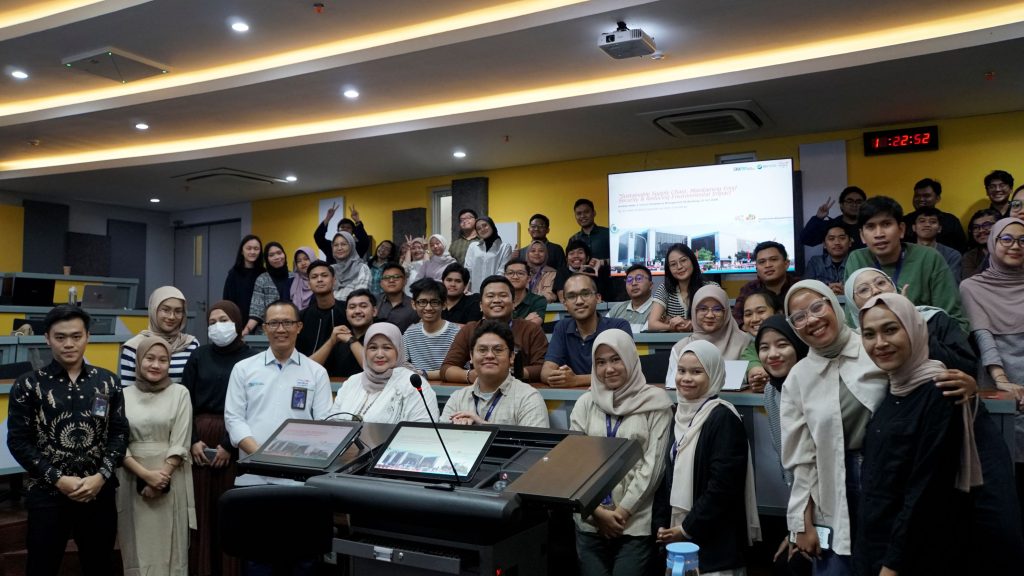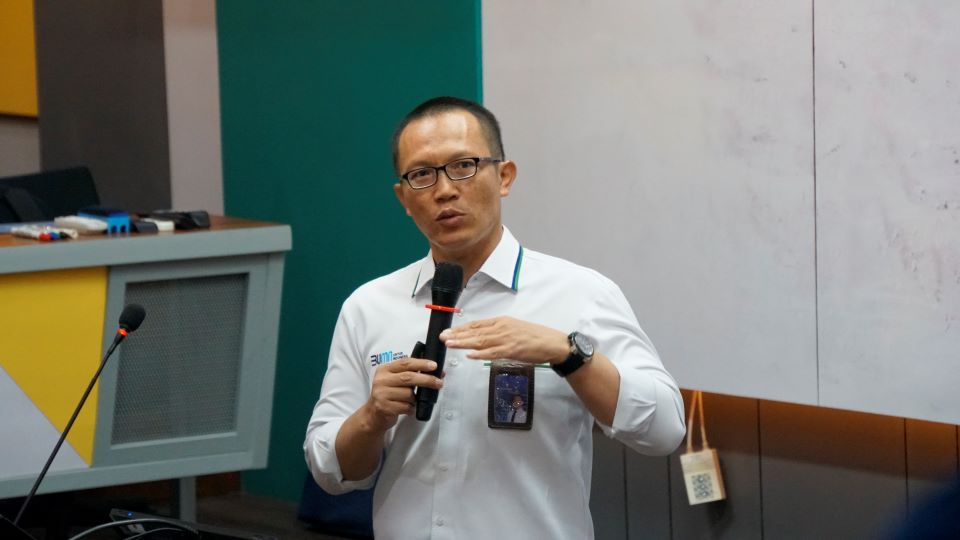Food loss generally occurs at the agricultural and distribution levels, causing major challenges in maintaining the sustainability of the global food system. Other factors include increasing demand, changes in consumer behavior, and climate change.
To that end, PT Berdikari, established to maintain national food security under the Ministry of State Secretariat (Mensestek), has decided to focus on its core business in the livestock sector since 2000. This decision was taken because Berdikari has a competitive advantage in this field.
“Berdikari has made many innovations and collaborations to process food to support food sovereignty,” said General Manager of Corporate Secretary & Social Responsibility at PT. Berdikari, AS. Hasbi Al-Islahi, when presenting at an Industry Based Learning seminar for Master of Business Administration students at SBM ITB on Friday (25/10).
According to Hasbi, to strengthen its position, Berdikari is also carrying out a corporate transformation covering two main aspects: business transformation and human resource (HR) transformation. This transformation was carried out to improve the company’s efficiency, productivity, and competitiveness at the national level.
Hasbi explained that PT Berdikari had created a joint work scheme to provide stock (seedlings), concentrated feed, assistance in livestock maintenance, and off-takers. As partners, they also provide related cages and equipment, labor, and green feed. Other partnerships are in the form of livestock maintenance and livestock sales to obtain profit sharing.

According to Hasbi, the major challenge in ensuring food security, nutritional quality, and sustainability in the beef sector in Indonesia is increasingly affecting the local market. Indonesian beef production is only able to meet 57% of the needs. Meanwhile, the remaining 43% is met through imports to meet annual consumption of around 700,000 tons. The dependence on imports occurs due to the lack of production infrastructure, supporting facilities, and the dominance of small-scale livestock farming, which makes it challenging to produce sustainable and large-scale beef.
Hasbi said that investment in the nutrition sector is substantial for the Indonesian people. Milk consumption is considered an essential nutritional investment to reduce the national stunting rate, which currently places Indonesia fourth in the world.
The government is targeting a reduction in stunting prevalence from 37% to 14% by increasing nutritional intake, one of which is by encouraging fresh milk consumption as a strategic step. However, the low dairy cattle population hinders the fulfillment of this need. Thus, increasing domestic milk production is critical to reducing import dependence and supporting stunting prevention programs in Indonesia.






